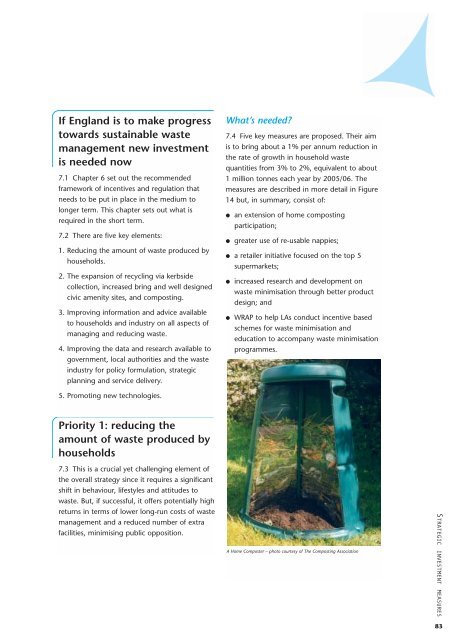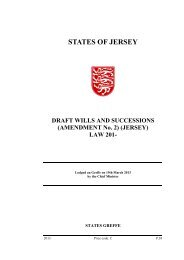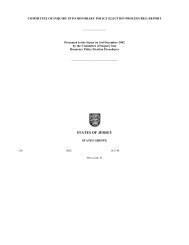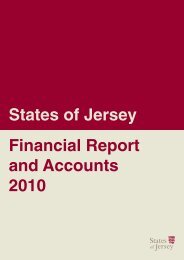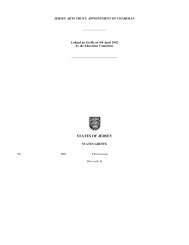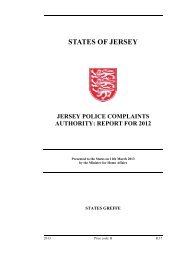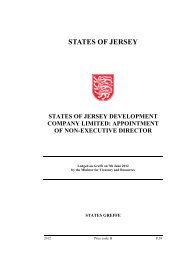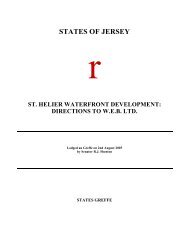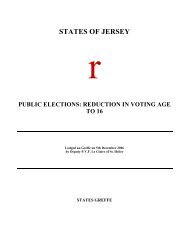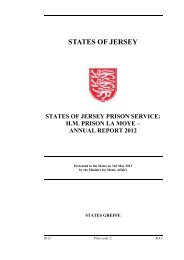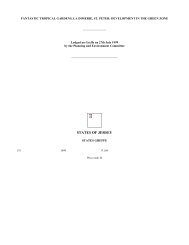Waste not want not - States Assembly
Waste not want not - States Assembly
Waste not want not - States Assembly
Create successful ePaper yourself
Turn your PDF publications into a flip-book with our unique Google optimized e-Paper software.
If England is to make progress<br />
towards sustainable waste<br />
management new investment<br />
is needed now<br />
7.1 Chapter 6 set out the recommended<br />
framework of incentives and regulation that<br />
needs to be put in place in the medium to<br />
longer term. This chapter sets out what is<br />
required in the short term.<br />
7.2 There are five key elements:<br />
1. Reducing the amount of waste produced by<br />
households.<br />
2. The expansion of recycling via kerbside<br />
collection, increased bring and well designed<br />
civic amenity sites, and composting.<br />
3. Improving information and advice available<br />
to households and industry on all aspects of<br />
managing and reducing waste.<br />
4. Improving the data and research available to<br />
government, local authorities and the waste<br />
industry for policy formulation, strategic<br />
planning and service delivery.<br />
What’s needed?<br />
7.4 Five key measures are proposed. Their aim<br />
is to bring about a 1% per annum reduction in<br />
the rate of growth in household waste<br />
quantities from 3% to 2%, equivalent to about<br />
1 million tonnes each year by 2005/06. The<br />
measures are described in more detail in Figure<br />
14 but, in summary, consist of:<br />
●<br />
●<br />
an extension of home composting<br />
participation;<br />
greater use of re-usable nappies;<br />
● a retailer initiative focused on the top 5<br />
supermarkets;<br />
●<br />
●<br />
increased research and development on<br />
waste minimisation through better product<br />
design; and<br />
WRAP to help LAs conduct incentive based<br />
schemes for waste minimisation and<br />
education to accompany waste minimisation<br />
programmes.<br />
5. Promoting new technologies.<br />
Priority 1: reducing the<br />
amount of waste produced by<br />
households<br />
7.3 This is a crucial yet challenging element of<br />
the overall strategy since it requires a significant<br />
shift in behaviour, lifestyles and attitudes to<br />
waste. But, if successful, it offers potentially high<br />
returns in terms of lower long-run costs of waste<br />
management and a reduced number of extra<br />
facilities, minimising public opposition.<br />
A Home Composter – photo courtesy of The Composting Association<br />
STRATEGIC INVESTMENT MEASURES<br />
83


